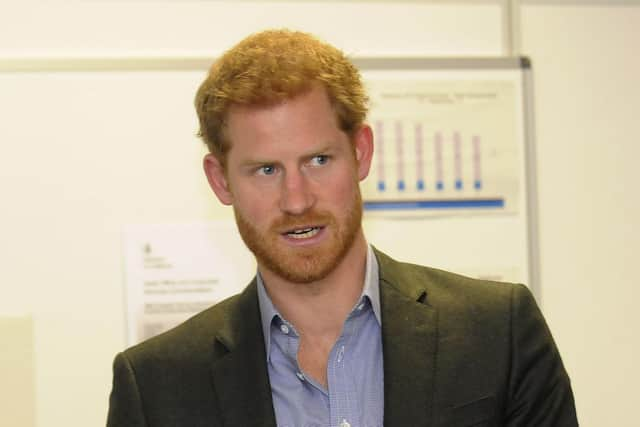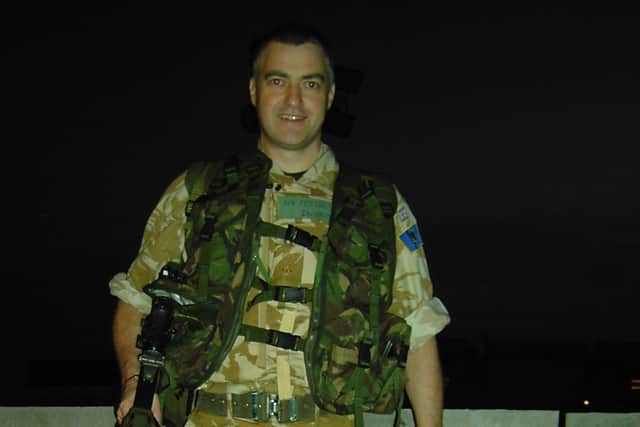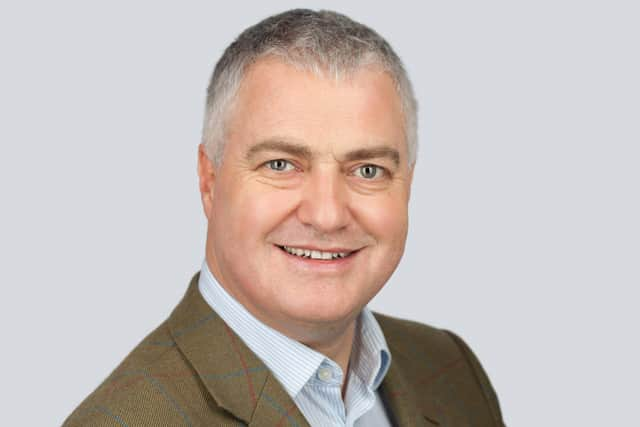Prince Harry's book, Spare: Retired Col Philip Ingram says royal's destructive behaviour may be due to PTSD picked up in Afghanistan
and live on Freeview channel 276
Philip Ingram MBE, who is originally from Co Tyrone, suffered Post Traumatic Stress Disorder (PTSD) after serving in Iraq as an intelligence officer in 1985/86.
But after successful treatment, he went on to help set up the Independent Defence Authority (IDA) to lobby for better care of such veterans.
Advertisement
Hide AdAdvertisement
Hide AdPrince Harry's newly released memoir, Spare, is making international headlines due to personal attacks on his own family, which Mr Ingram says is a typical sign of PTSD.


He notes Harry's response when asked directly in a recent ITV interview if he has Post Traumatic Stress Disorder.
Harry responded 'no' and instead claimed to have ‘Post Traumatic Stress Injury’. He added: 'I do not have a disorder'.
But Mr Ingram responded: "I am sorry, that is rubbish. Those suffering PTSD deny that they are misbehaving."
Advertisement
Hide AdAdvertisement
Hide AdThe origins of the Ulsterman’s own PTSD lay in his tour of Iraq in 1985/86. A close friend was killed, and when they went to arrest those responsible, they realised they had all the intelligence needed to prevent the attack but had been denied the means to prioritise the information.


"It ripped my soul out,” he said.
The death of his friend later fed into him coming "less than a nano-millimeter" off taking his own life.
On another occasion he witnessed three men "laughing and giggling" as they abused the remains of a soldier.
"People who suffer from PTSD can become very proficient at putting on a mask and seeming completely normal," he told the News Letter.


Advertisement
Hide AdAdvertisement
Hide Ad"But behind that front you can be doing things that are tearing you apart, ranging from attacking those closest to you - verbally, emotionally or physically - or drinking, drugs and inappropriate relationships."
Mr Ingram met Harry personally when the young officer was passing out from Sandhurst, the Ulsterman noting "a spark" in his eyes and "the joy of life beaming out of his face".
Since then, he notes Harry claims to have killed 25 Taliban fighters.
"The imaging systems on the Apache helicopters he flew beam graphic images into your eyeballs in much more detail than if you were on the ground,” he said.
Advertisement
Hide AdAdvertisement
Hide AdSince that experience, he notes the "spark" has gone from Harry's eyes.
"And the way he is attacking elements of his family and thinking of things from a completely Machiavellian perspective - I used to do that.
"The way he describes things in interviews was almost like flashbacks of my own behaviour. You see him going from assertive to almost aggressive, to his shoulders slumping and him looking down. There are so many little tells. The guy needs help."
The current response by King William and Prince Willam to Harry's claims about them is exactly right, he believes: "Do nothing and say nothing. It is best to allow him to fall apart and then be ready to catch the pieces and put them back together again."
Advertisement
Hide AdAdvertisement
Hide AdAnd if Harry is reading this, he adds: "Reach out to someone who has been through this – and just talk to them".
If you have been affected by these issues you can call Beyond the Battlefield on 02891 225 610 or Lifeline on 0808 808 8000.